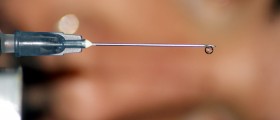
Most of what we eat today is based on grains, such as, rye, wheat, barley and lastly spelt, although this one is little known. These grains are man produced and they started life thousands of years ago. In today's modern living grains are part of many dishes we eat daily. However, with modern medicine, doctors can now analyze many ailments that were unknown before. One of the main ones is what is known as Gluten intolerance. Gluten is a protein that is a derivative of some grains. Gluten intolerance can make you feel unwell, therefore people who suspect there is something wrong should consult their doctor to arrange gluten intolerance testing. Just bear in mind that some doctors also call this, testing for wheat allergies.
Testing Processes
Prior to any testing the doctor will determine the health of the individual, namely, age, any other health issues, medication they may be on and even any special diet they may be following. Once this paper analysis has been completed the doctor will move onto allergen and blood tests. The later will identify whether the individual has Celiac disease. In brief this disease interferes with digesting nutrients from your food and it cannot tolerate gluten. In determining whether the individual has celiac disease the lab will be looking at the level of antibodies AGA, EMA and lastly Anti-tTG in the blood. Depending on the results from this testing the doctor will discuss with the individual whether an intestinal biopsy is recommended. If celiac disease is not present the doctor may simply place the individual on a total gluten free diet to determine if this relieves the issue of not feeling well.
Detailed Clinical Tests for Gluten/Wheat Intolerances
Now that we have an overview of the testing process we now need to look at the detailed clinical testing that is undertaken by doctors when determining any indication of celiac disease and gluten/wheat intolerances. Once the blood tests have been taken and forwarded to the testing laboratory the lab technician will test the blood count called the CBC to see if the individual is suffering from amenia. The levels for vitamins B12, D and E in the blood to ascertain if there is any vitamin deficiency present. Other analysis will include kidney and liver functions, plus analyzing protein, electrolyte and calcium levels. Once these tests have been completed and there is no indication of celiac disease it does not necessary mean you don’t have gluten intolerance or a wheat allergy. So, the next step is allergy testing.
Allergy Testing
This is a simple test done on the skin that will allow the doctor to determine what allergies the individual may have. It may indicate a wheat allergy, if so then a wheat free diet is recommended and will be monitored by the doctor.

















Your thoughts on this
Loading...